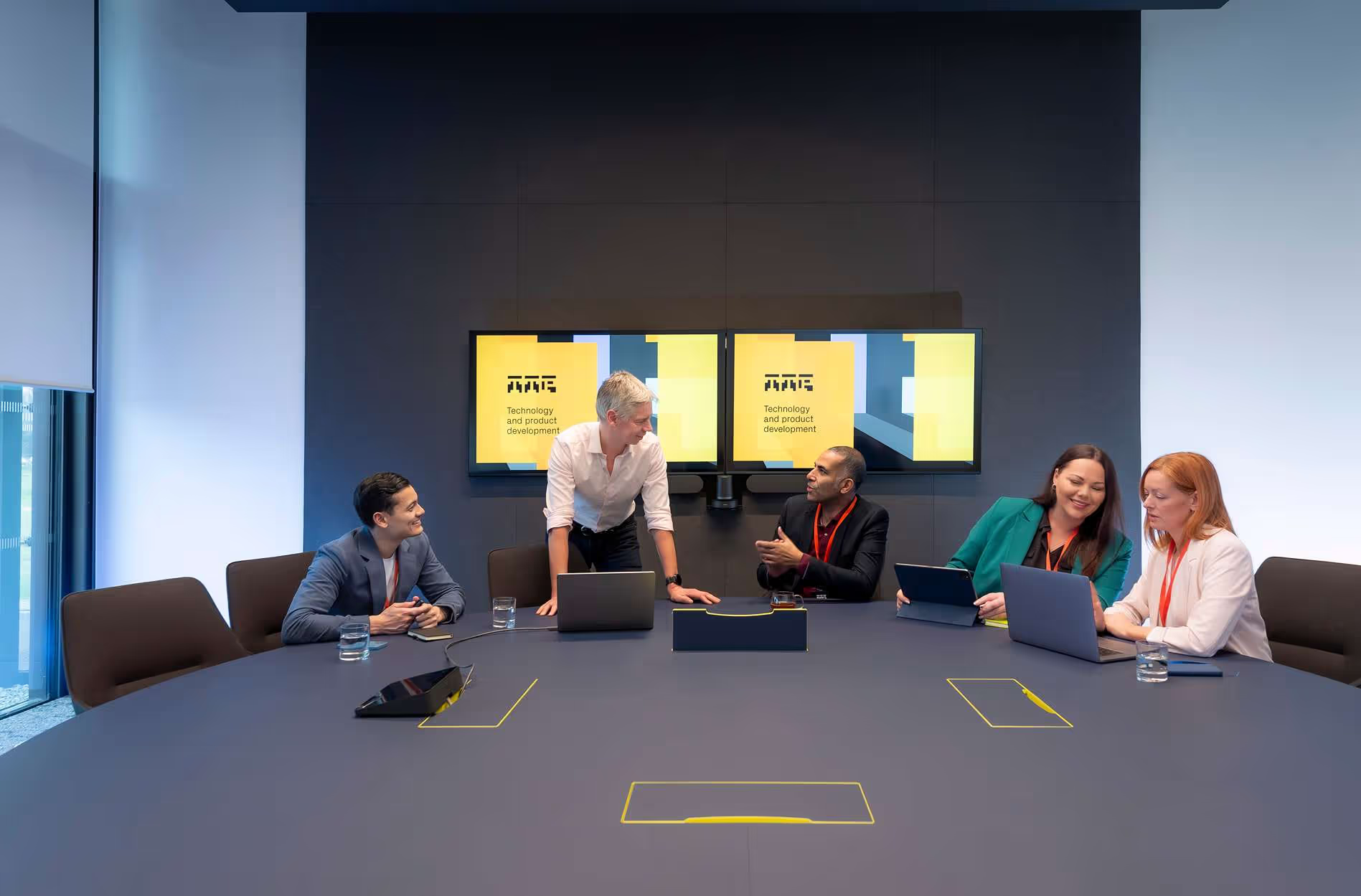
Biosensing
Transforming healthcare by enabling the next generation of biosensors.
With a 25-year track record of biosensor product development, we can help you take your sensing technology from concept to market-ready product quickly across a wide range of clinical applications. Navigating the technical and commercial complexities, clients trust us to develop solutions driven by scientific insight and engineering rigour. With our collaborative approach we can enhance patient outcomes, improve lives, and deliver measurable value for your business.


A trusted development partner for your biosensor device
Developing a commercially successful biosensor, whether wearable or implantable, can be an intricate process, with each device posing unique challenges.
When you choose TTP to partner with you on your biosensor design and development, you gain access to a team of multidisciplinary experts who have deep knowledge and expertise in the biosensing market, helping you deliver a product that leverages the right design and technologies to enable it to be commercially successful.
We work across on-body wearables and long-term fully implantable systems, ensuring that you deliver the right sensing solutions for patients in a way that is most valuable to them.
Our comprehensive approach ensures you receive full support throughout the end-to-end biosensor development process - from initial sensor design and optimisation through to electronics, communications, human factors, systems engineering, and software development, all the way to low-volume manufacturing of devices for testing and clinical trials and then on to transfer to volume manufacture.
With extensive experience across a broad range of sensor modalities, our team can help you accelerate the development of your next breakthrough solution, drawing on our expertise in electrochemical, optical, spectroscopic, piezoelectric and ultrasound, motion, load, electrical, and electromagnetic-based sensing. We proactively identify and address risks while anticipating future challenges, retiring them early to reduce costly delays.
Our in-house electrochemical sensor testing system can also be leveraged to enable high-throughput testing and iteration of sensor designs, reducing time to market while minimising the need for internal investment in custom equipment development.
Together we’ll ensure your biosensor project can achieve its full potential. At TTP we can turn your vision into reality with the expertise and support to give the best chance of commercial success.
Find out how we can help you - speak to a biosensing expert today.


TTP played an essential role in assessing the feasibility of an exciting new Continuous Glucose Monitoring (CGM) concept discovered at Carbometrics Limited. The team are hugely experienced, professional and efficient. They are well versed in the immense challenges that pave the way from concept to product and we learned a huge amount working with them.
Andy Chapman
CEO and Co-founder of Carbometrics


TTP’s scientific team ‘went the extra mile’ time and again by asking questions, identifying and pursuing pathways, and presenting complete solutions to unforeseen findings.
Dr Paul Goode
Glucotrack, USA


Navigating the complexities of biosensor development
The process of biosensor development requires navigating a maze of engineering and human factors trade-offs to create a device that is effective, safe, and user-friendly for both patients and healthcare providers. The sensor must take sufficiently accurate and repeatable measurements that are clinically relevant for its application, exhibit manageable drift over life, and be designed in a way that is manufacturable, scalable, and cost-effective to ensure market acceptance and ultimately reach (and benefit) patients.
For wearable biosensors, these challenges typically revolve around size, power consumption, and data accuracy. Devices must be compact and lightweight, while also incorporating batteries that last long enough for practical use. Implantable biosensors face even more stringent requirements in terms of size, biocompatibility, long-term reliability, connectivity, and power consumption.
From our direct experience of bringing biosensors to market, our team understands that successfully navigating these trade-offs requires expertise across multiple disciplines, including biomedical engineering, materials science, electronics, and software development.
This is where partnering with TTP can be invaluable; we can bring a wealth of interdisciplinary knowledge to your development project, helping you streamline the design process, accelerate time to market, and reduce the risk of costly errors.
Find out how TTP developed and validated an in-silico model to simulate sensor performance over its lifetime to guide faster, more informed design decisions. Learn more


Accelerating biosensor development with automated testing
To build confidence that a biosensor will be perform well enough to meet regulatory requirements, even in vitro testing calls for significant rigour.
That’s why we've developed an automated sensor testing platform that meets the needs of characterising novel sensor designs, developing manufacturing processes, and generating data to support regulatory submissions.
We’ve thought carefully about the biosensor development testing workflow and best practice to create a flexible system that addresses the challenge of manual testing, test rig reliability, and inefficient data management during biosensor development.
The core of the system is a robust fluidic platform that runs repeatable test sequences with an expandable number of sensors and test fluids. During long-term sensor testing, this can automatically switch between through-flow for calibration checks with rapid concentration changes, to recirculation to assess sensor drift while preserving test solutions. We use a flexible database that links all this information to create secure, complete, and readily accessible test records.
This enables a rigorous and methodological testing resource that supports device development and scale-up without needing to invest the time and money to develop your own rig.
How we can help
Sensor technology design and development
We specialise in the innovative design and development of cutting-edge biosensors across a broad range of measurement modalities, from first principles modelling and proof-of-concept development, all the way through to design for manufacture and volume scale-up. With a focus on achieving the right sensitivity, accuracy, reliability, to integrate well into a device or system with great usability that enables the early detection of vital biomarkers to deliver better patient outcomes.

Wearable and implantable form factors
With expertise in the development of both on-body wearable as well as passive and active long-term implantable device form factors, we understand the challenges around comfort, biocompatibility, durability, power management, and wireless communications.
Percutaneous wearable devices need companion applicators that are simple and pain-free to use, and are able to robustly and repeatably apply the sensor package across a variable patient population. Long-term implantable devices may require custom clinical tools, and could also need external interface devices depending on use case.
Getting each of these right is key to developing solutions that deliver seamless integration, and offer continuous real-time monitoring to empower patients with valuable and actionable health insights to better manage their conditions.

Electronics and communications
Achieving the correct balance between measurement accuracy, power consumption, device size and longevity is key for wearable and implantable devices, and the design of the electronics is critical to this. Understanding how each element of these trade-offs effect the user experience, and developing an electronics design to deliver an efficient, compact, reliable and usable device will be vital to its success.
Once you have taken a measurement, the ability to send that data reliably for analysis and reporting enables actionable interventions. Our expertise in the development of custom and customised wireless and wired communication hardware, antennas, and protocols guarantees real-time connectivity, enabling swift decision-making.

Expertise across sensing modalities
Our understanding of advanced electrochemical sensing technologies allows us to be able to optimise each approach to offer precise and selective detection of biochemical markers. Our in-house electrochemical test system enables controlled and repeatable high-throughput testing and iteration of sensor designs.
We also excel in developing high-performance sensing systems across optical, electrical, fluorescence, spectroscopic, and ultrasound sensing modalities that deliver accuracy and sensitivity within challenging power constraints to providing critical insights.

Human factors and usability
Even the greatest technologies need to be intuitive, simple to use, and integrate well into daily life to be widely adopted. We prioritise human factors engineering, studying how the target audience use the technology, in developing system designs. This ensures our biosensor devices are user-friendly and intuitive, and focus on enhancing user experience, influencing behaviours, reducing errors, and increasing adherence.

Opportunity discovery to manufacture
We can support the medical device development process from initial opportunity discovery through to scaled manufacture, and everything in between. We can deliver full design history files to support regulatory submissions and guide our clients through this process, and work closely with test houses and notified bodies to achieve the correct certifications.

Regulatory expertise in medical device development
We help you navigate the complex regulatory landscape with confidence, preparing robust design history files and ensuring compliance with global standards. Our ISO 13485-certified quality system and deep technical expertise bridge the gap between engineering and regulatory submission, streamlining approval processes for pharmaceutical and medical device companies.

Sensor technology design and development
We specialise in the innovative design and development of cutting-edge biosensors across a broad range of measurement modalities, from first principles modelling and proof-of-concept development, all the way through to design for manufacture and volume scale-up. With a focus on achieving the right sensitivity, accuracy, reliability, to integrate well into a device or system with great usability that enables the early detection of vital biomarkers to deliver better patient outcomes.

Wearable and implantable form factors
With expertise in the development of both on-body wearable as well as passive and active long-term implantable device form factors, we understand the challenges around comfort, biocompatibility, durability, power management, and wireless communications.
Percutaneous wearable devices need companion applicators that are simple and pain-free to use, and are able to robustly and repeatably apply the sensor package across a variable patient population. Long-term implantable devices may require custom clinical tools, and could also need external interface devices depending on use case.
Getting each of these right is key to developing solutions that deliver seamless integration, and offer continuous real-time monitoring to empower patients with valuable and actionable health insights to better manage their conditions.

Electronics and communications
Achieving the correct balance between measurement accuracy, power consumption, device size and longevity is key for wearable and implantable devices, and the design of the electronics is critical to this. Understanding how each element of these trade-offs effect the user experience, and developing an electronics design to deliver an efficient, compact, reliable and usable device will be vital to its success.
Once you have taken a measurement, the ability to send that data reliably for analysis and reporting enables actionable interventions. Our expertise in the development of custom and customised wireless and wired communication hardware, antennas, and protocols guarantees real-time connectivity, enabling swift decision-making.

Expertise across sensing modalities
Our understanding of advanced electrochemical sensing technologies allows us to be able to optimise each approach to offer precise and selective detection of biochemical markers. Our in-house electrochemical test system enables controlled and repeatable high-throughput testing and iteration of sensor designs.
We also excel in developing high-performance sensing systems across optical, electrical, fluorescence, spectroscopic, and ultrasound sensing modalities that deliver accuracy and sensitivity within challenging power constraints to providing critical insights.

Human factors and usability
Even the greatest technologies need to be intuitive, simple to use, and integrate well into daily life to be widely adopted. We prioritise human factors engineering, studying how the target audience use the technology, in developing system designs. This ensures our biosensor devices are user-friendly and intuitive, and focus on enhancing user experience, influencing behaviours, reducing errors, and increasing adherence.

Opportunity discovery to manufacture
We can support the medical device development process from initial opportunity discovery through to scaled manufacture, and everything in between. We can deliver full design history files to support regulatory submissions and guide our clients through this process, and work closely with test houses and notified bodies to achieve the correct certifications.

Regulatory expertise in medical device development
We help you navigate the complex regulatory landscape with confidence, preparing robust design history files and ensuring compliance with global standards. Our ISO 13485-certified quality system and deep technical expertise bridge the gap between engineering and regulatory submission, streamlining approval processes for pharmaceutical and medical device companies.

Our approach and capabilities
We deliver across the entire life of a project, from opportunity discovery to production engineering. Discover how our interdisciplinary teams of experts collaborate to tackle the toughest product development challenges.
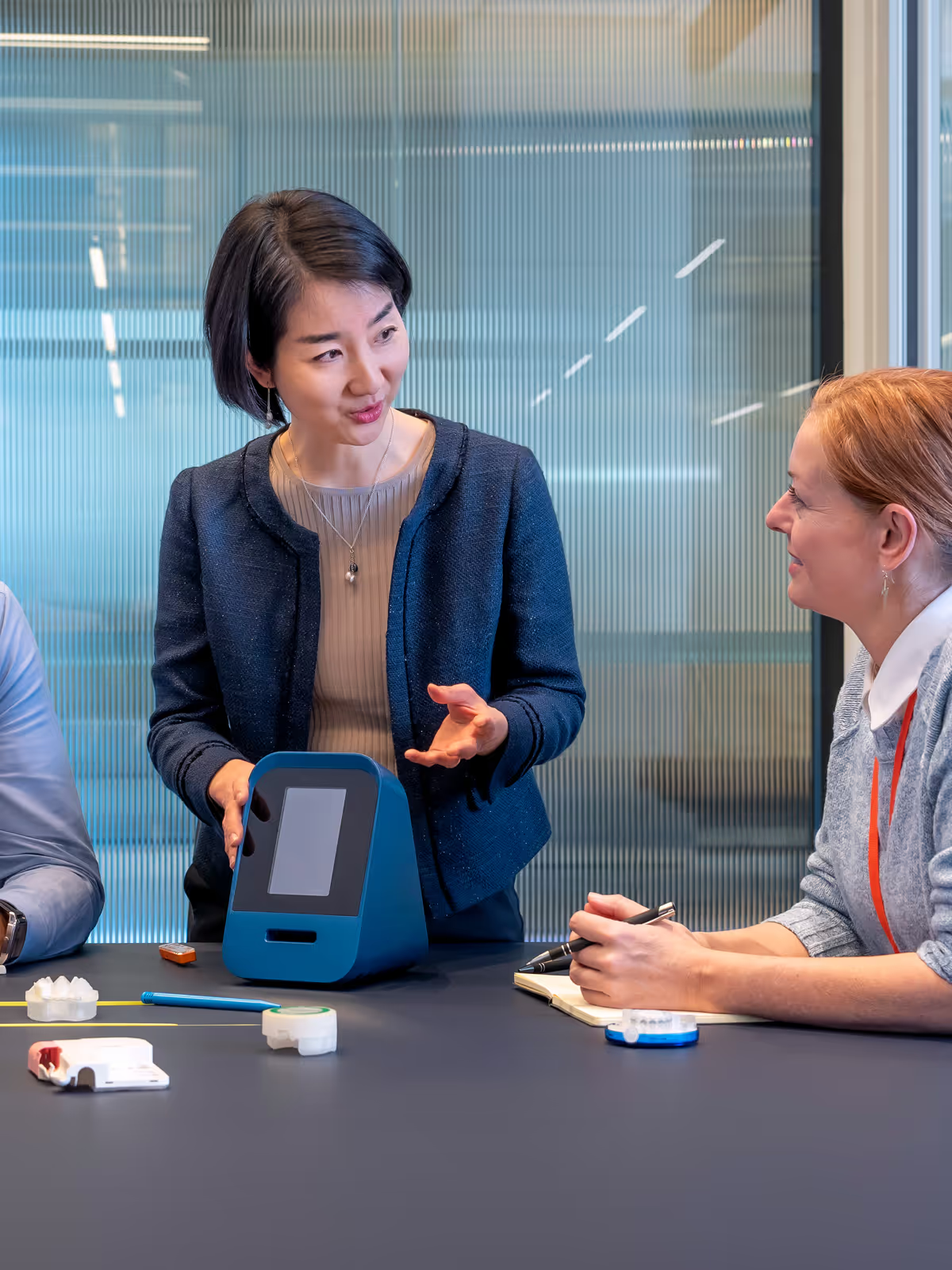
Our campus and facilities
Our award-winning campus has been designed with a clear vision. To create a space which can support our people and our clients as we develop and deliver the very best technology solutions.
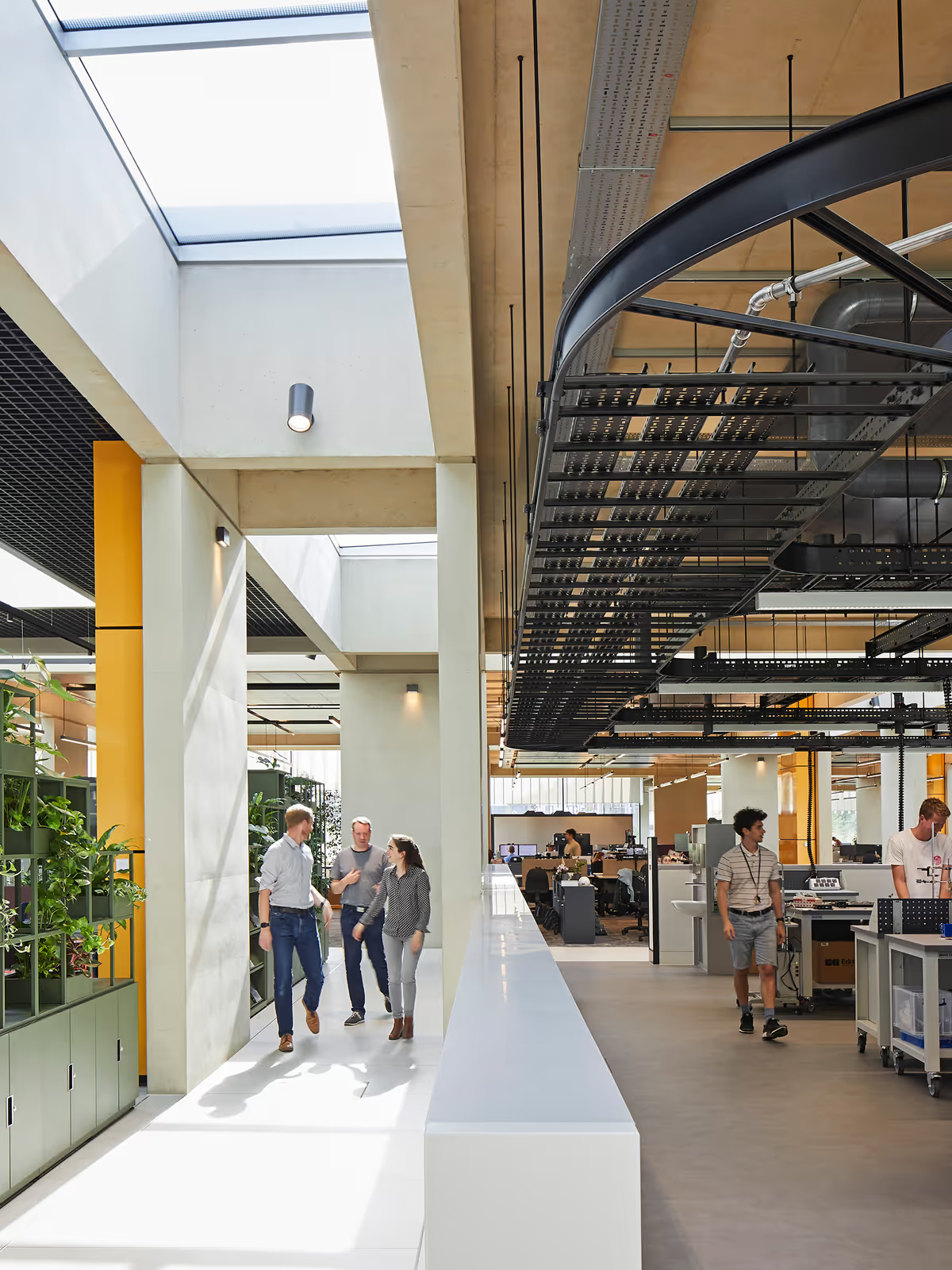
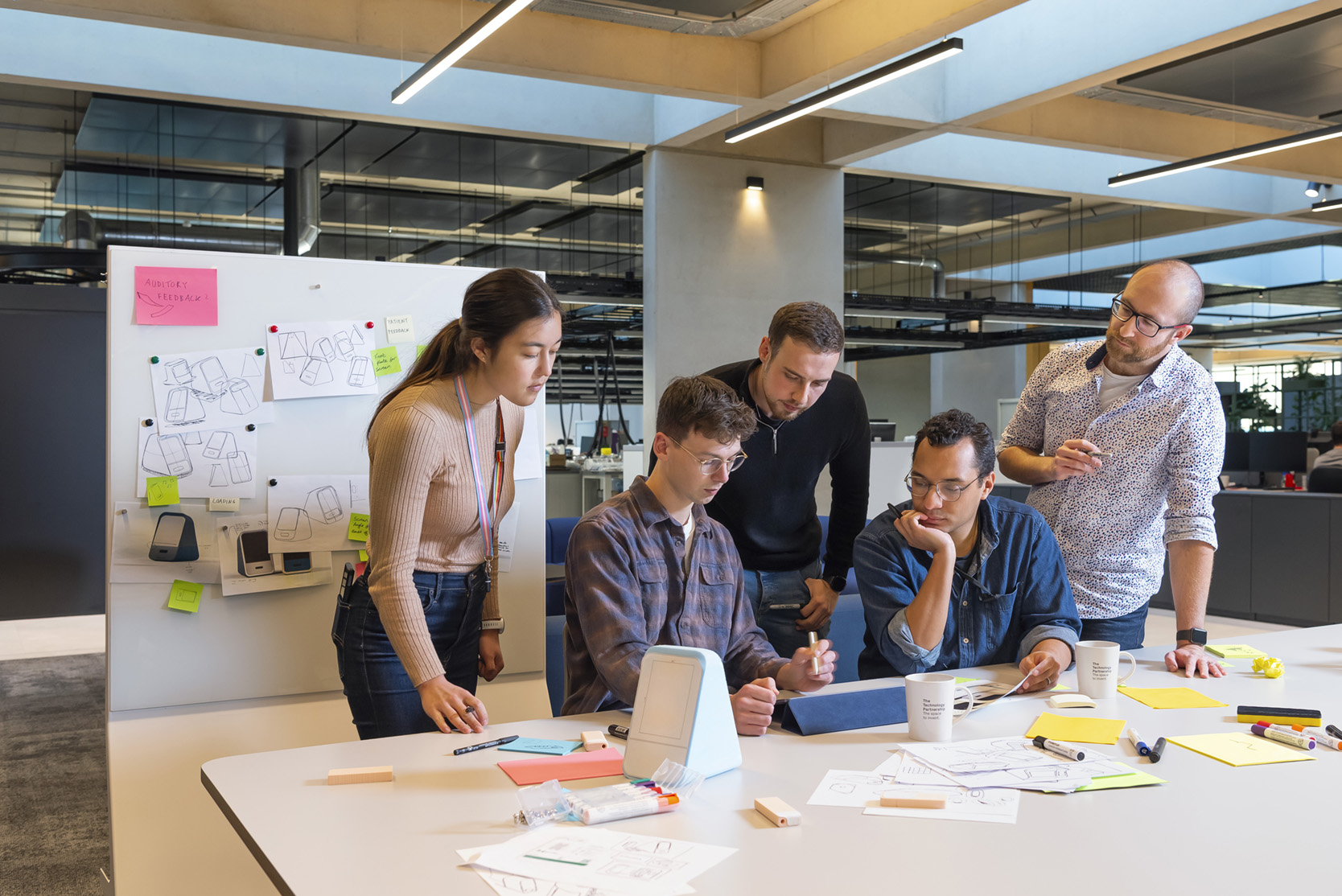
Software capability at TTP
Engaged in all stages of software and product development, our software capability at TTP covers the full spectrum—from in-depth analysis and system architecture to prototype design, implementation, and test development.
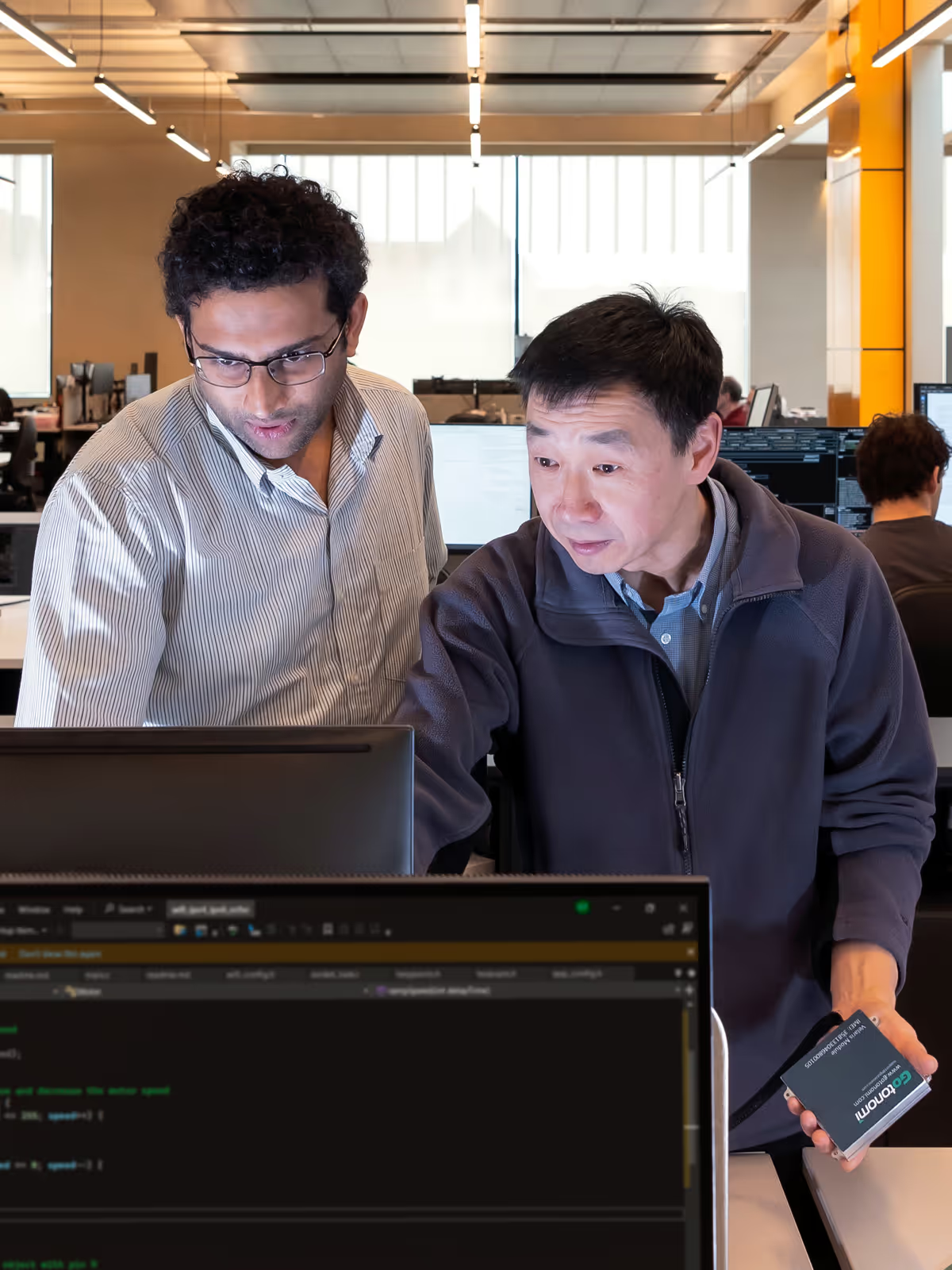
Manufacturing capability at TTP
Working seamlessly with our development teams, we take clients' products through prototype builds, clinical trials, pilot manufacture and more. Using TTP Manufacturing reduces uncertainty, risk and time to market for our clients.
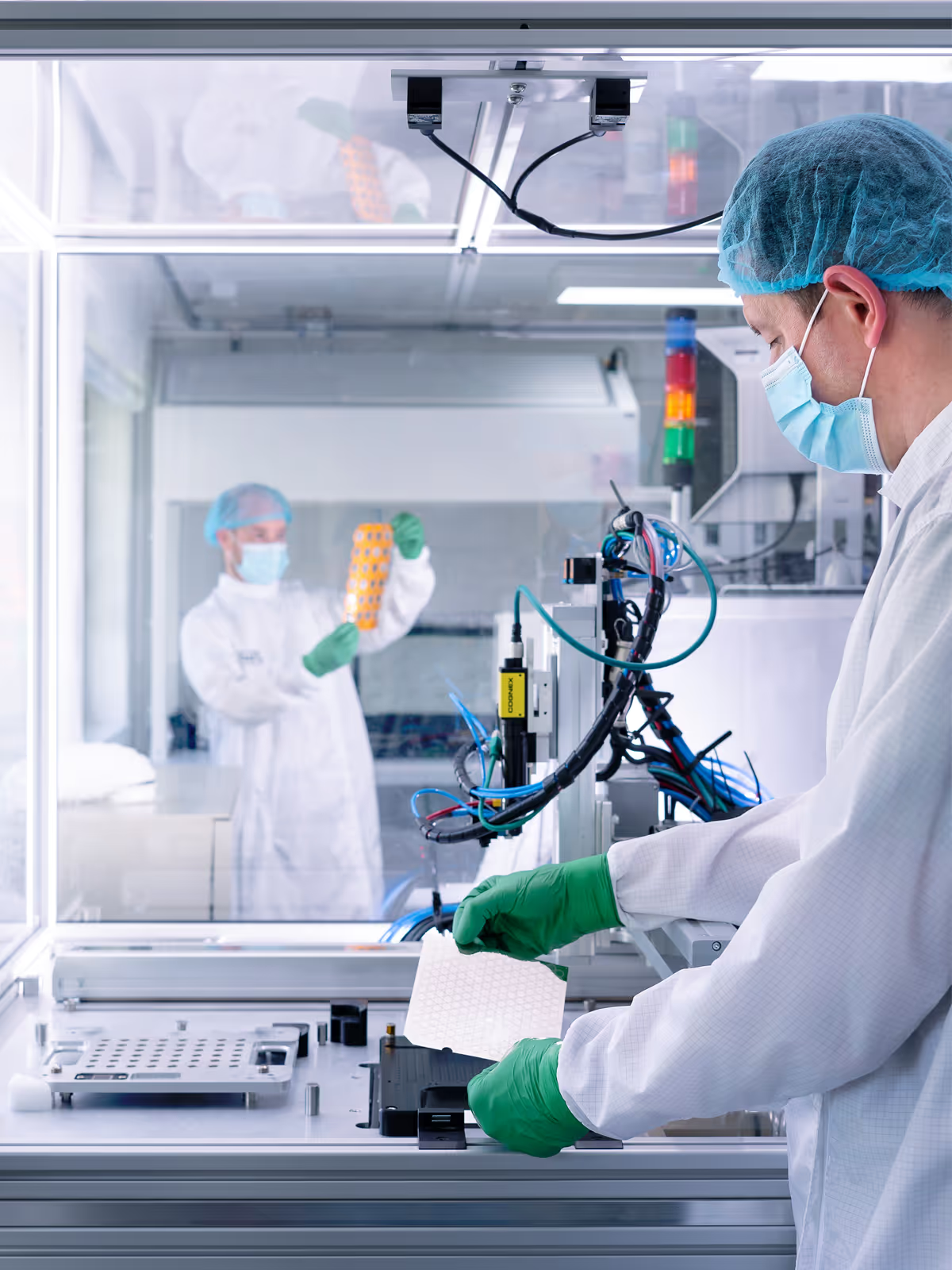
Meet some of the team
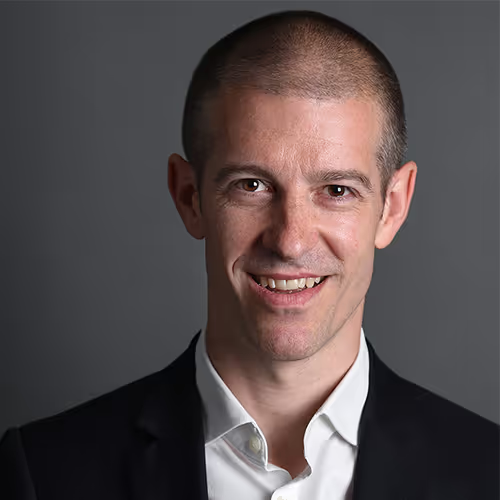
Chris Dawson

James Gooch

Sophie Meredith

Farah Alimagham

Qing Liu

Justin Buckland
